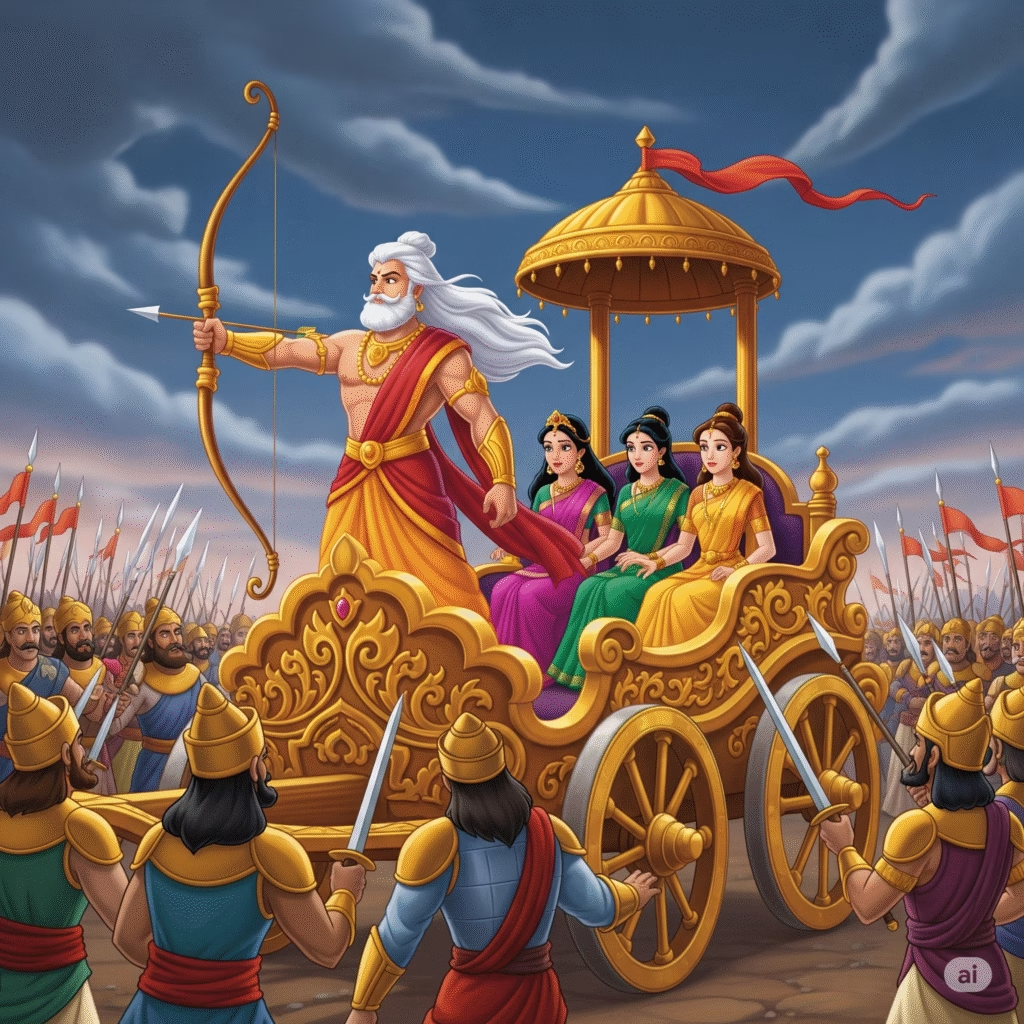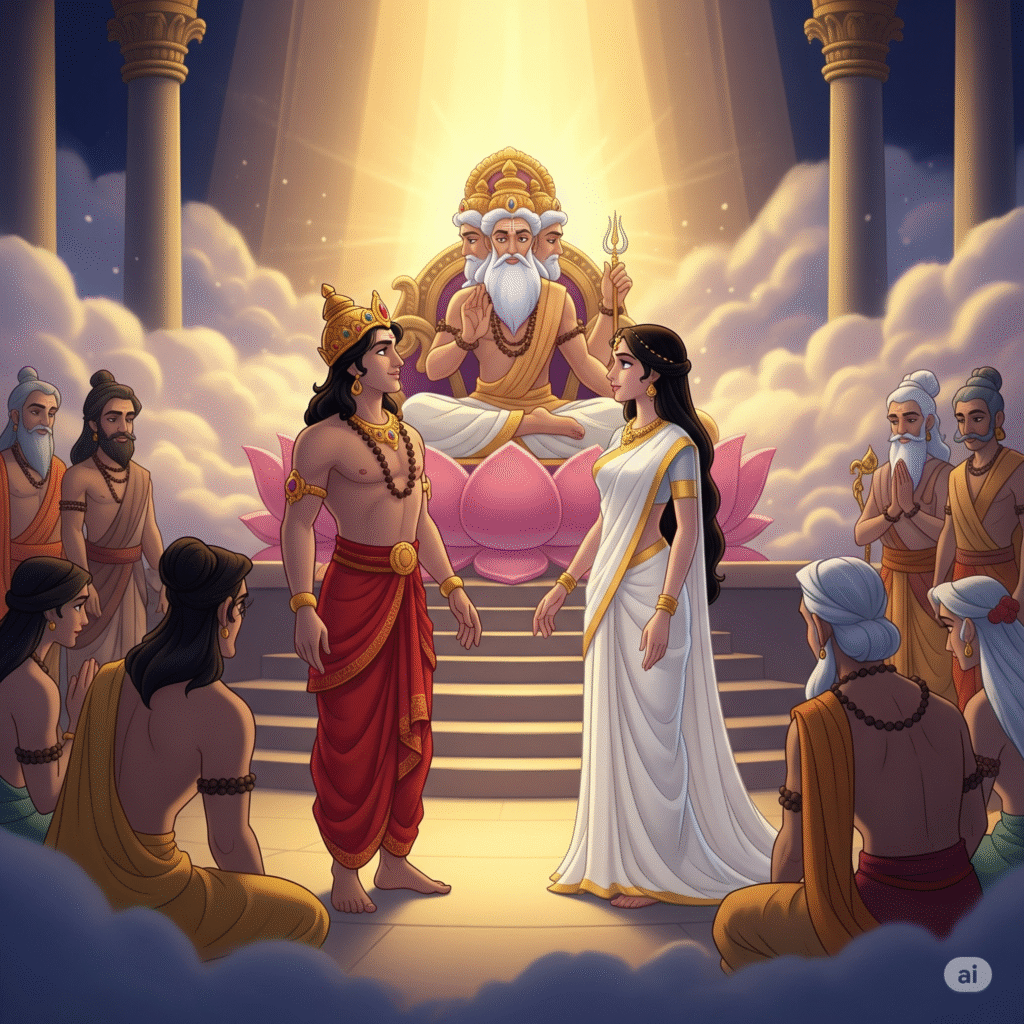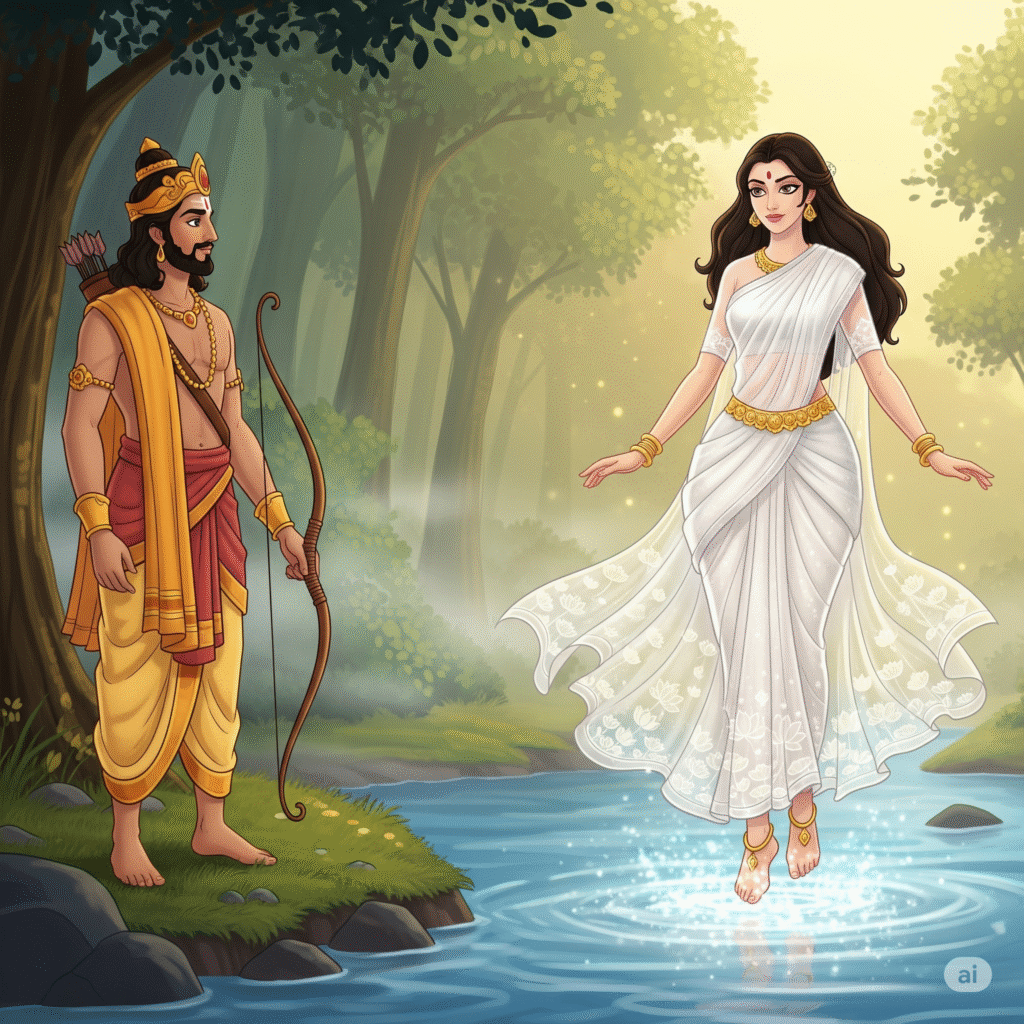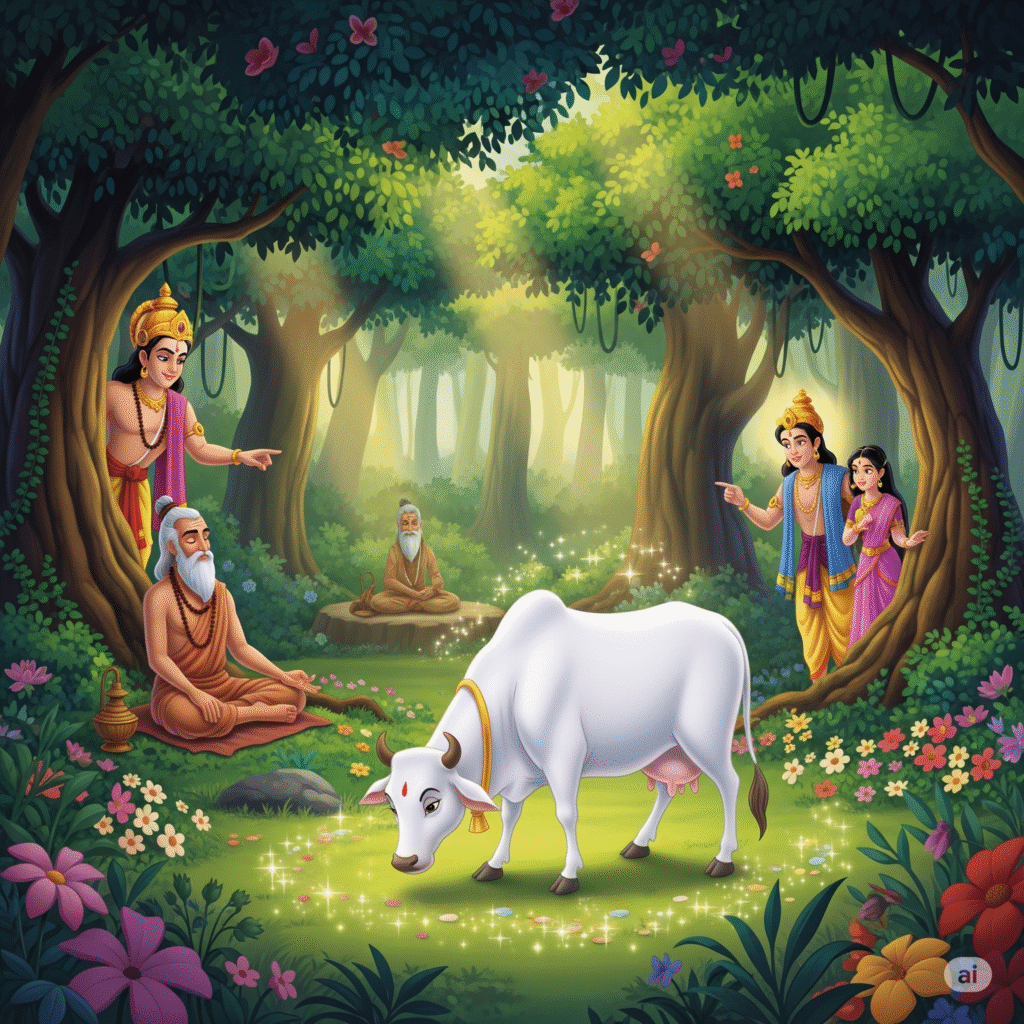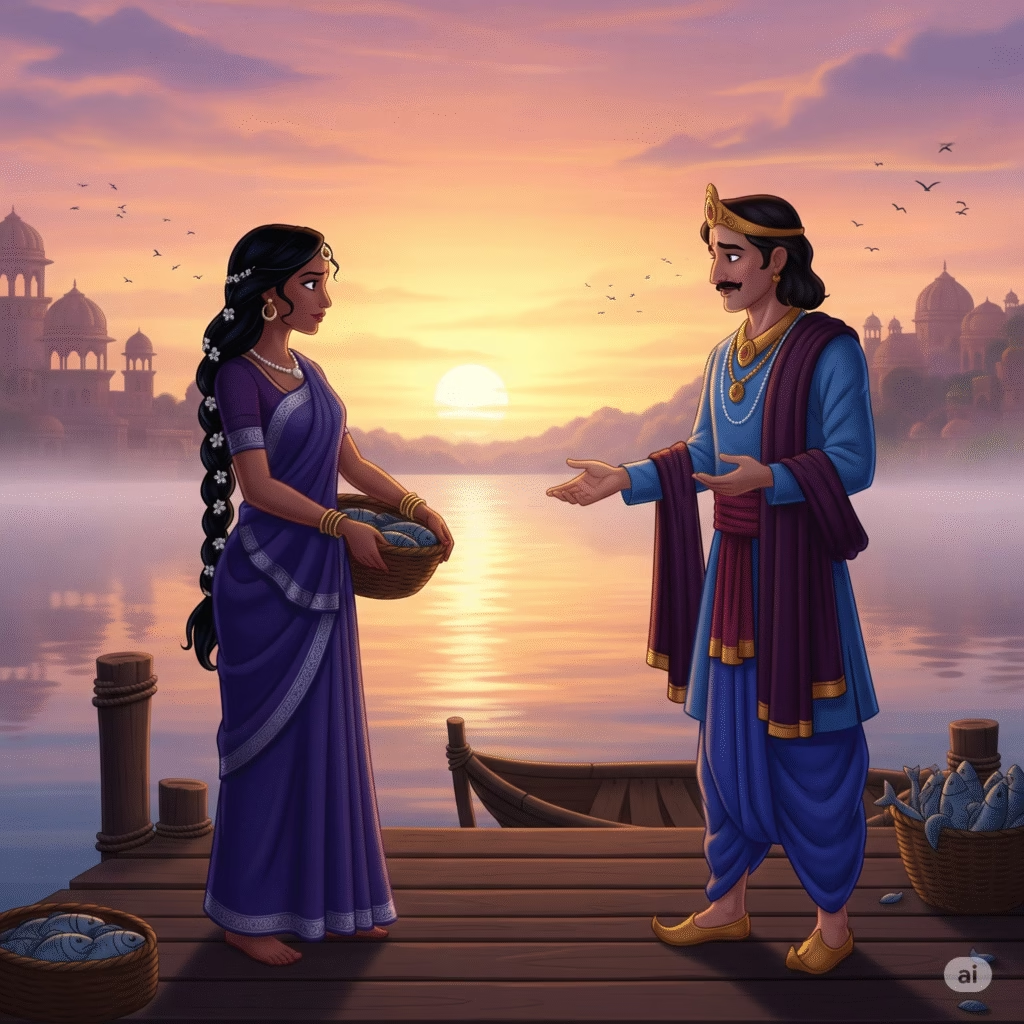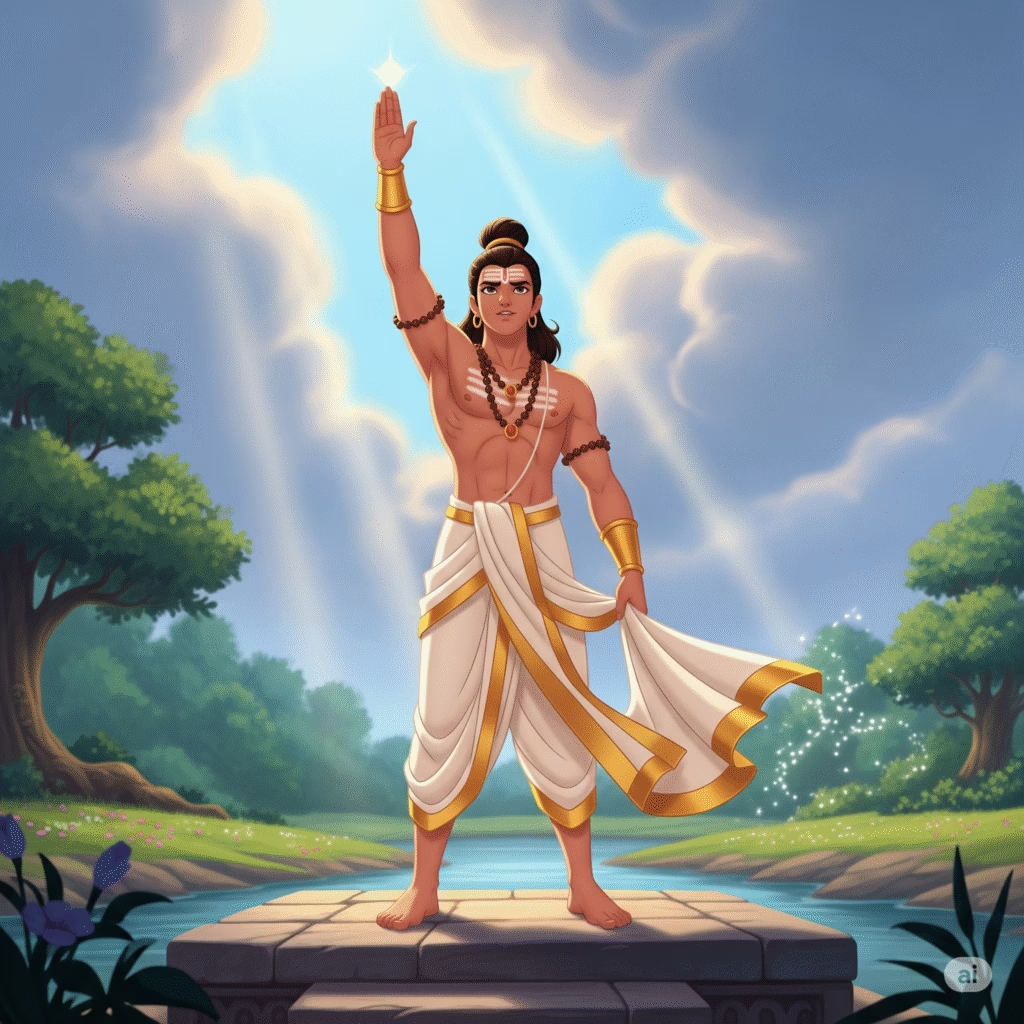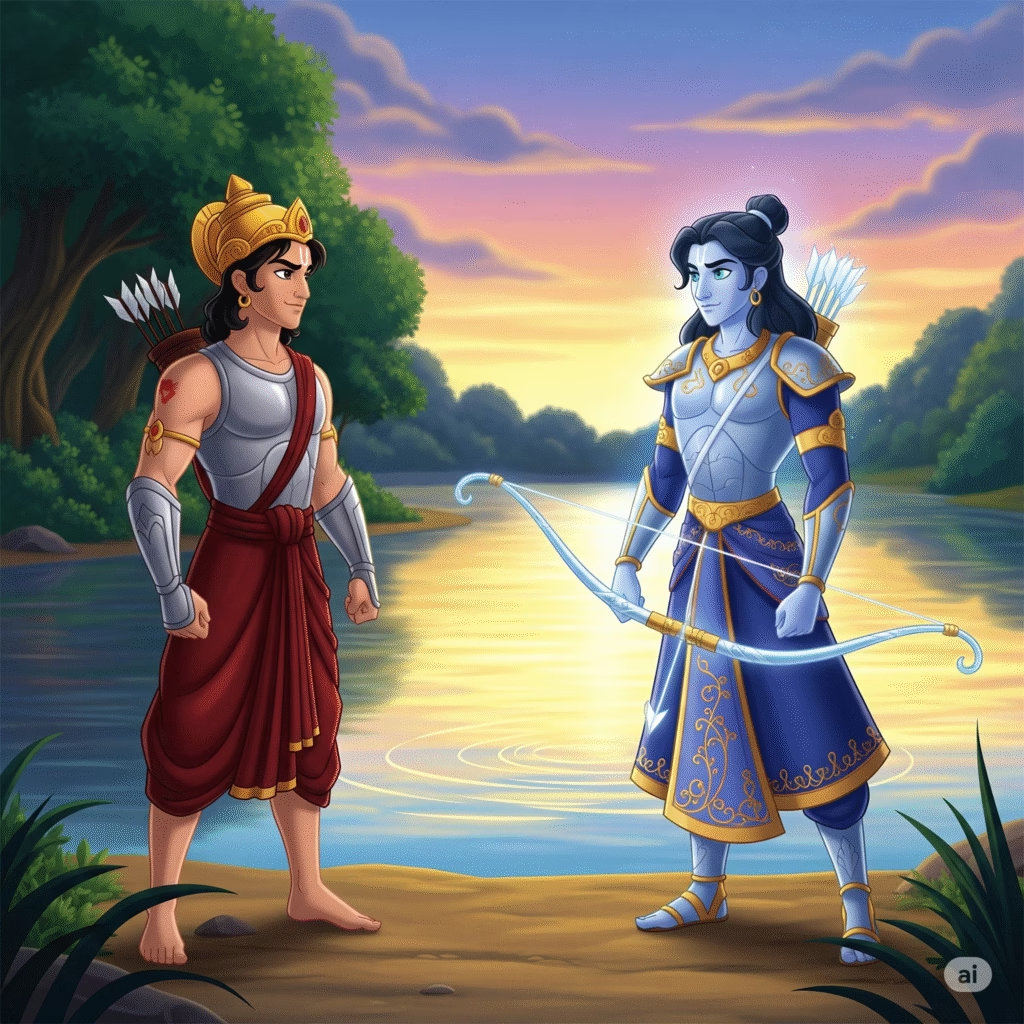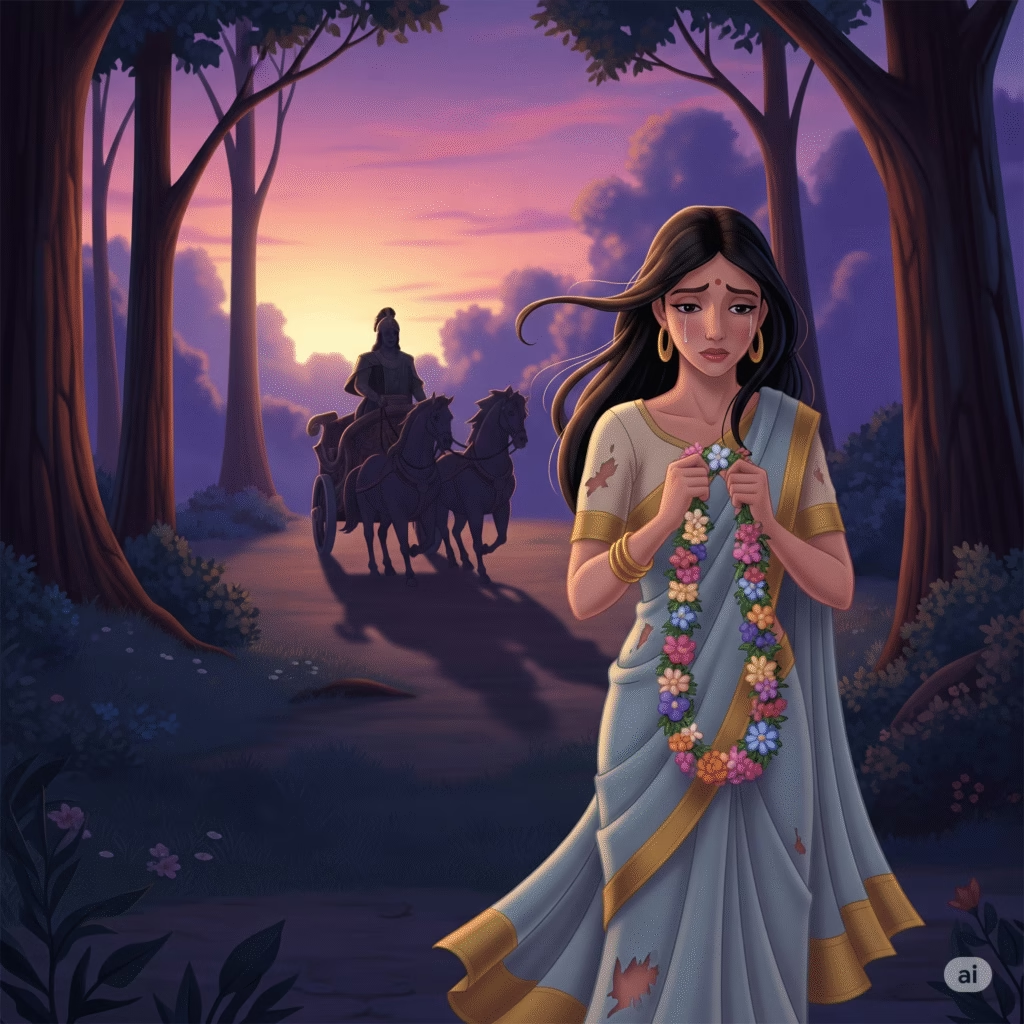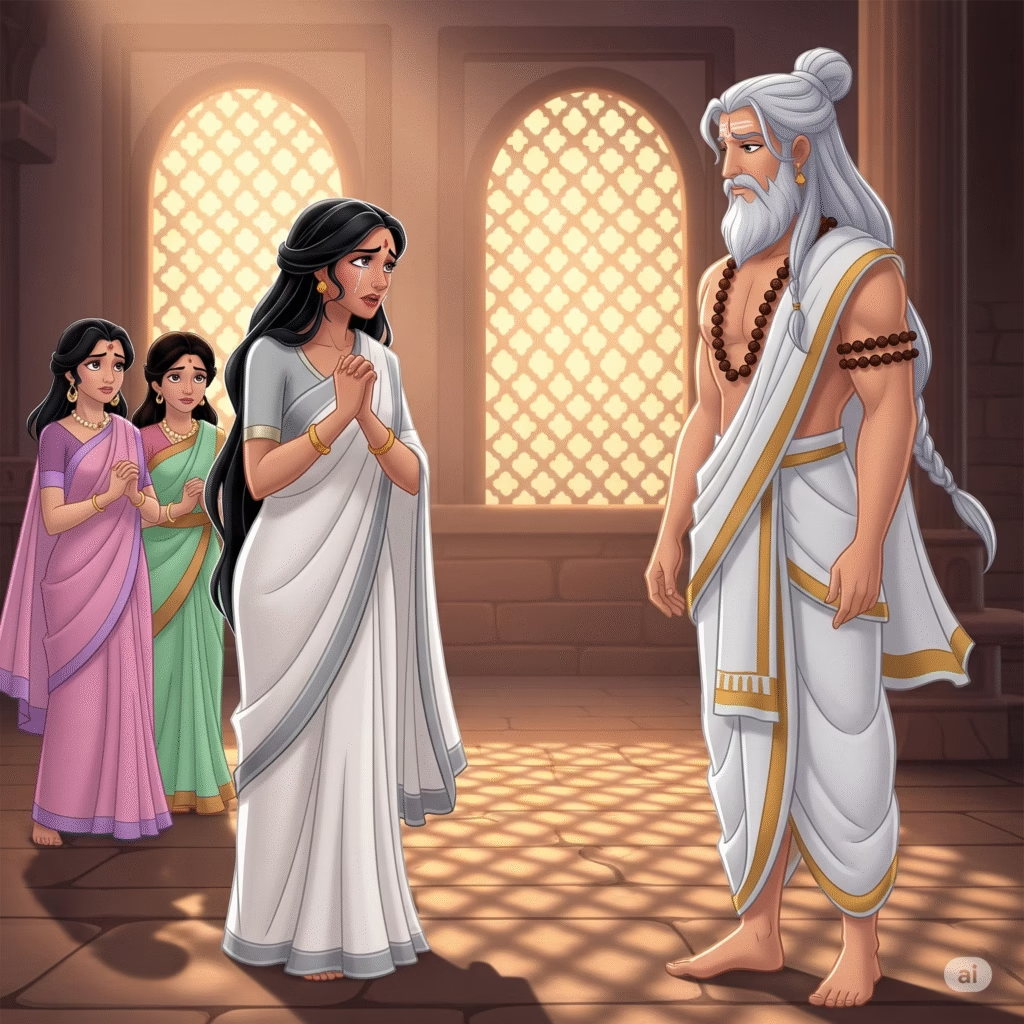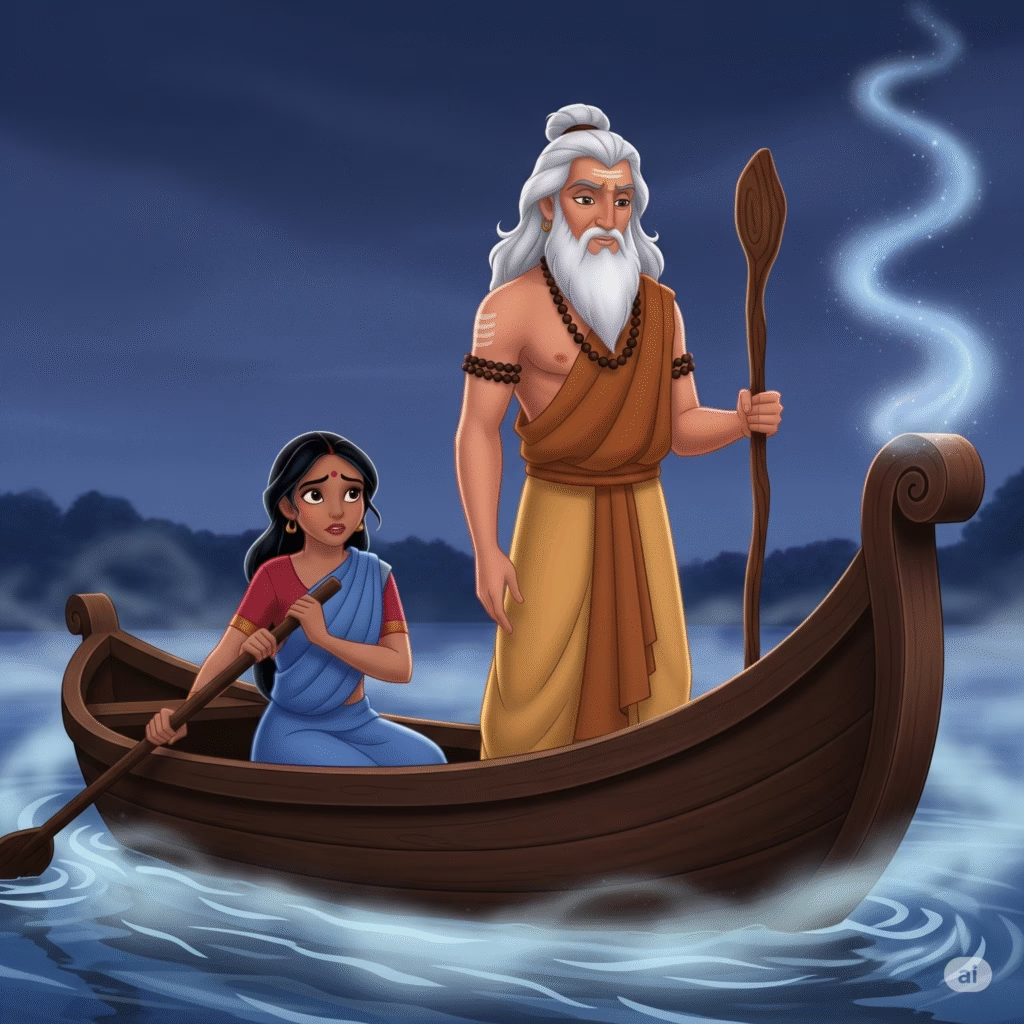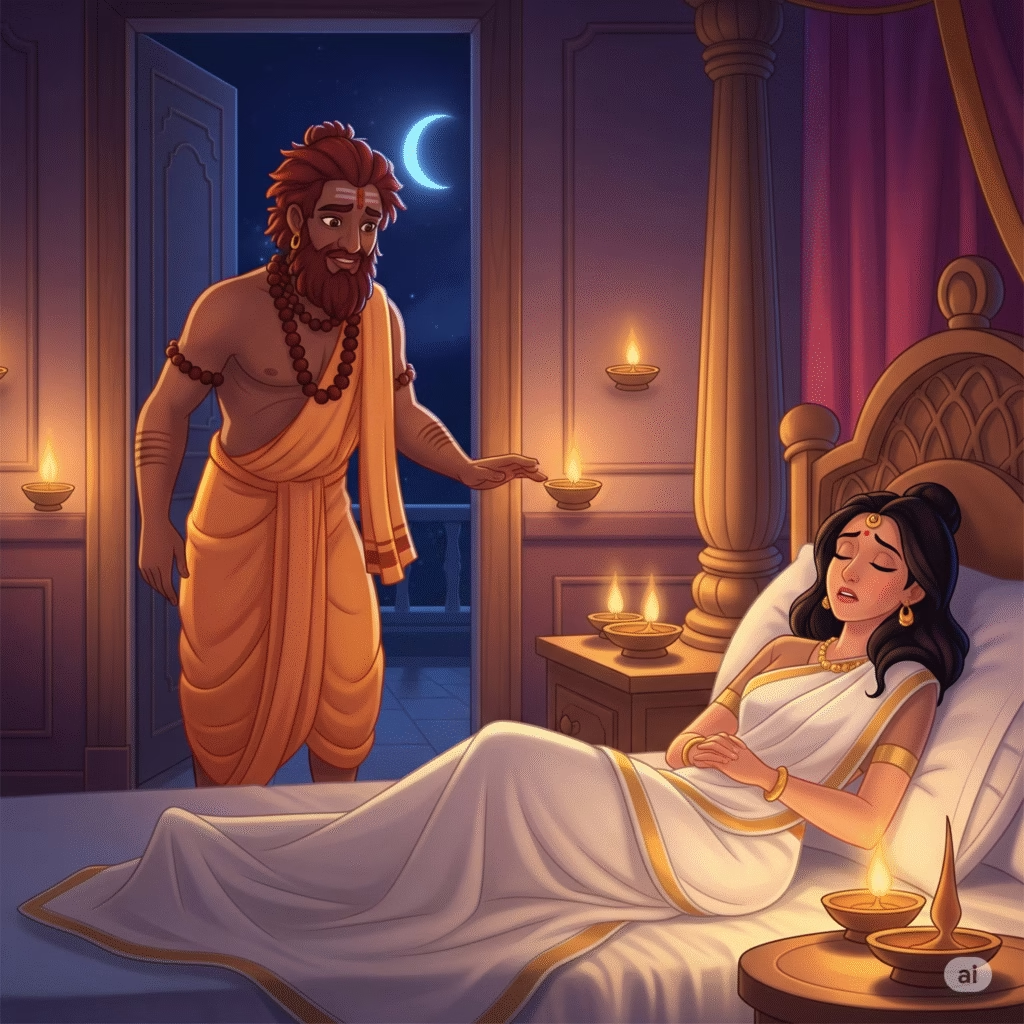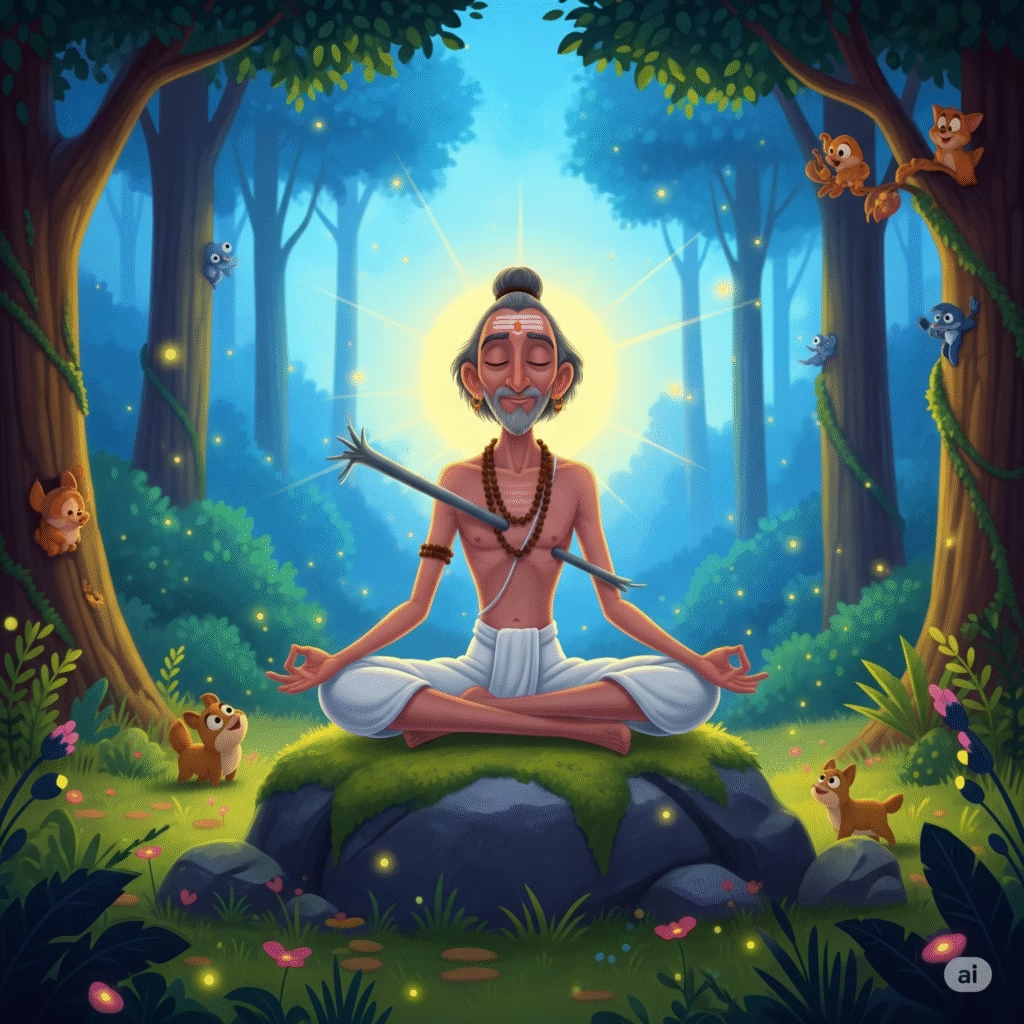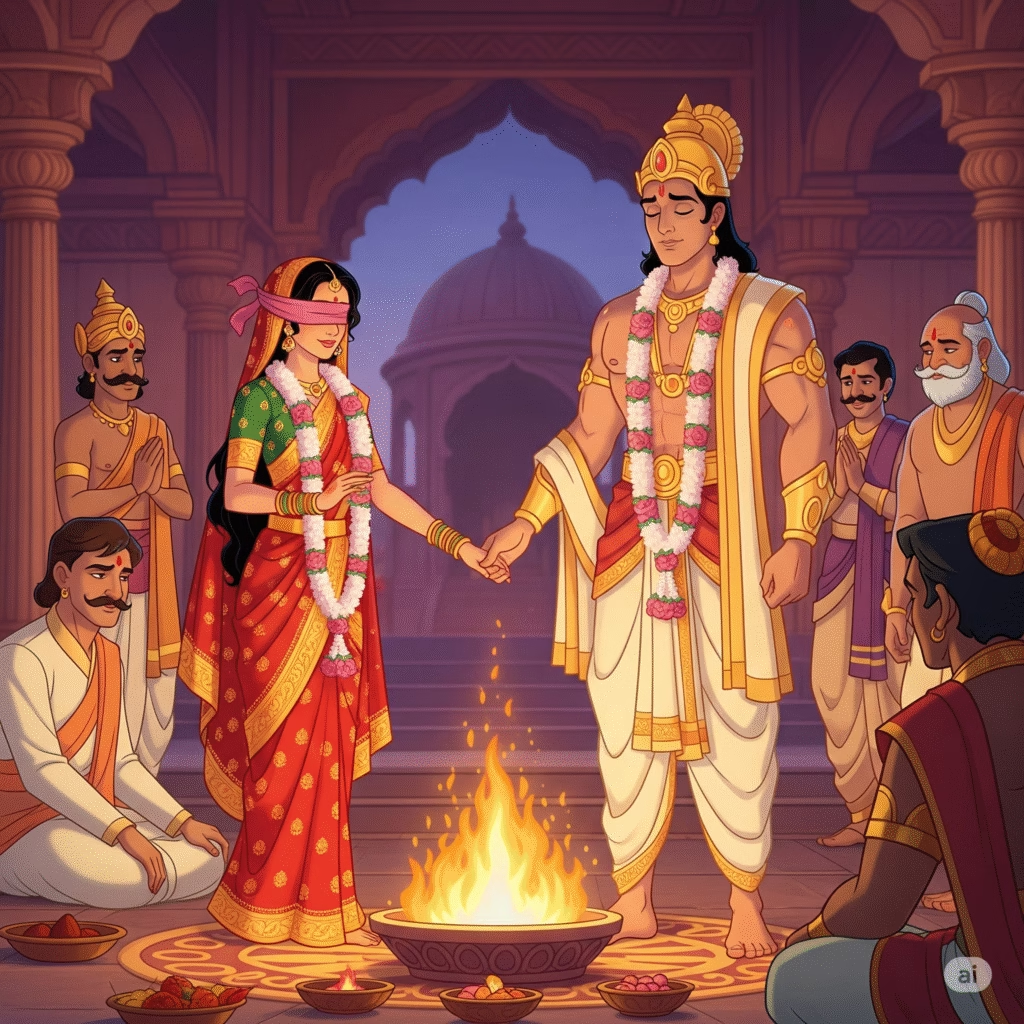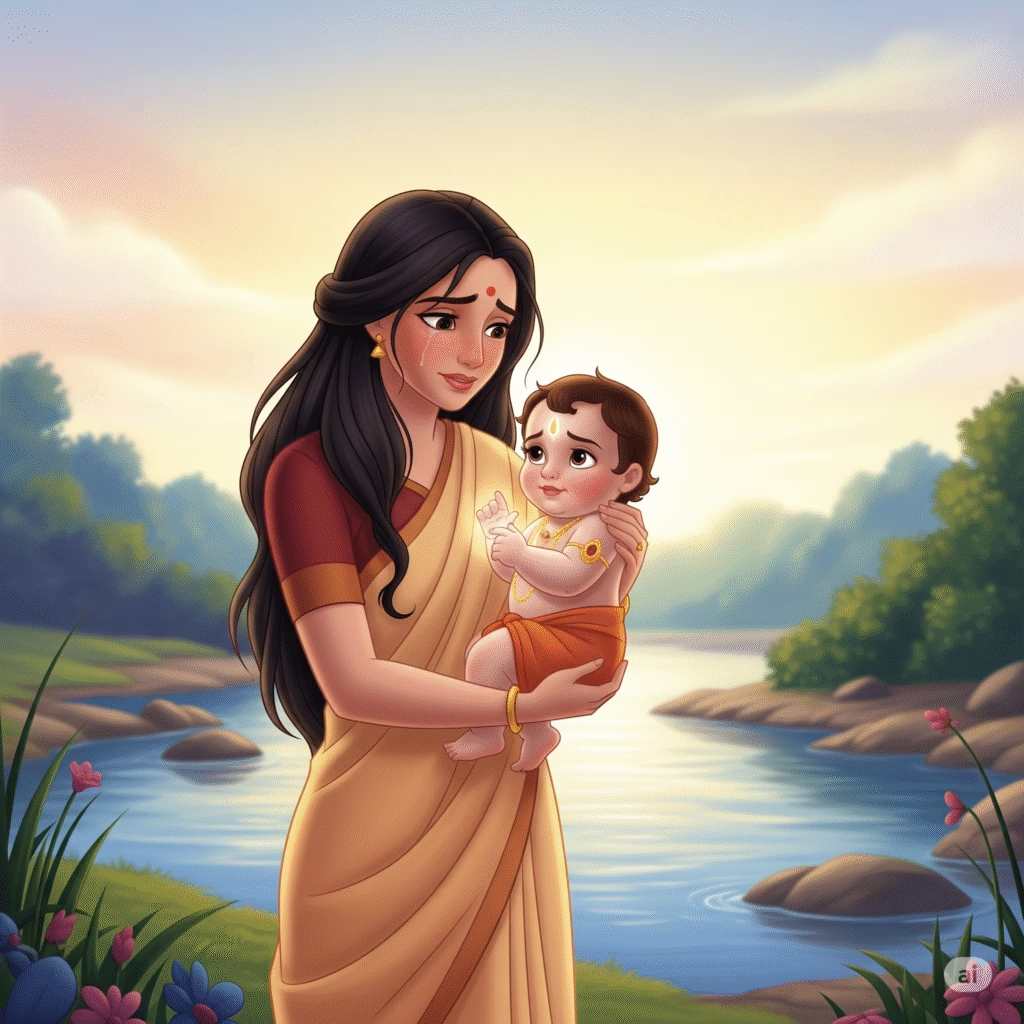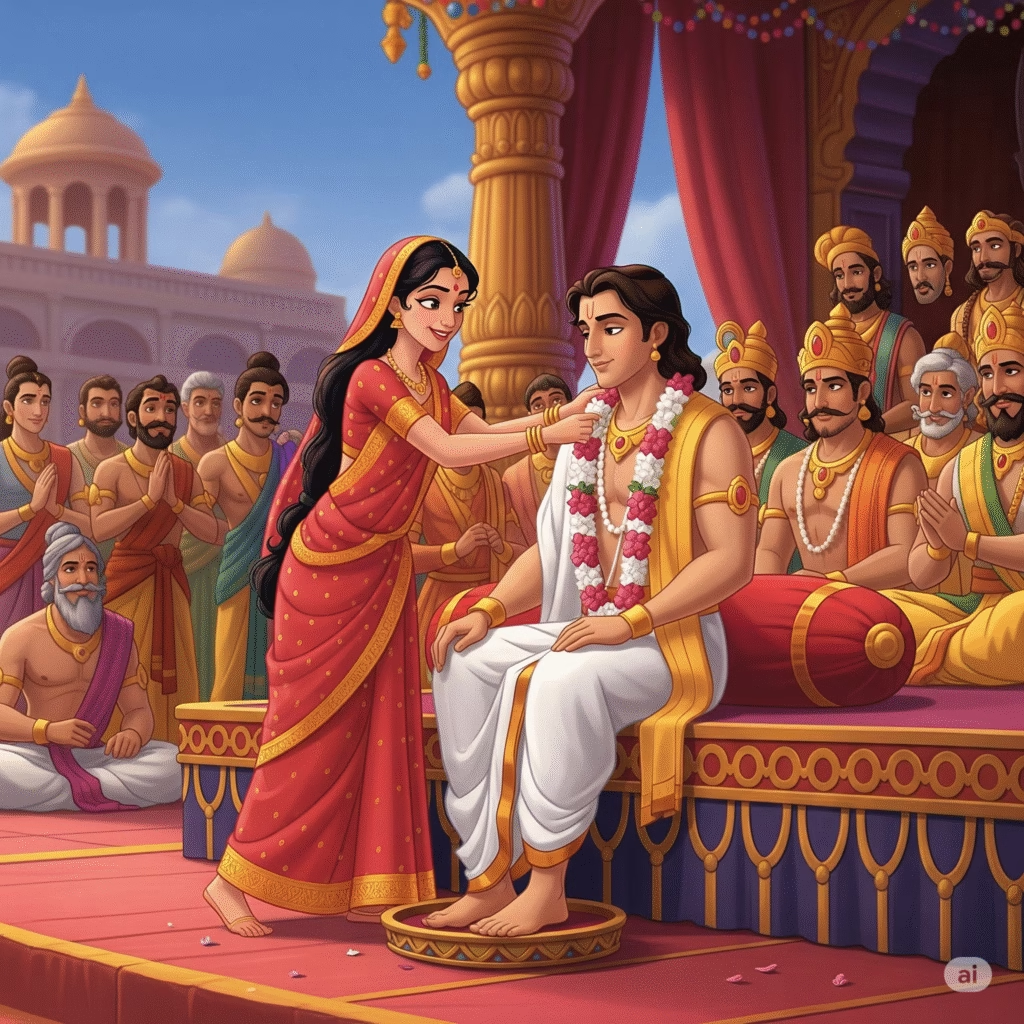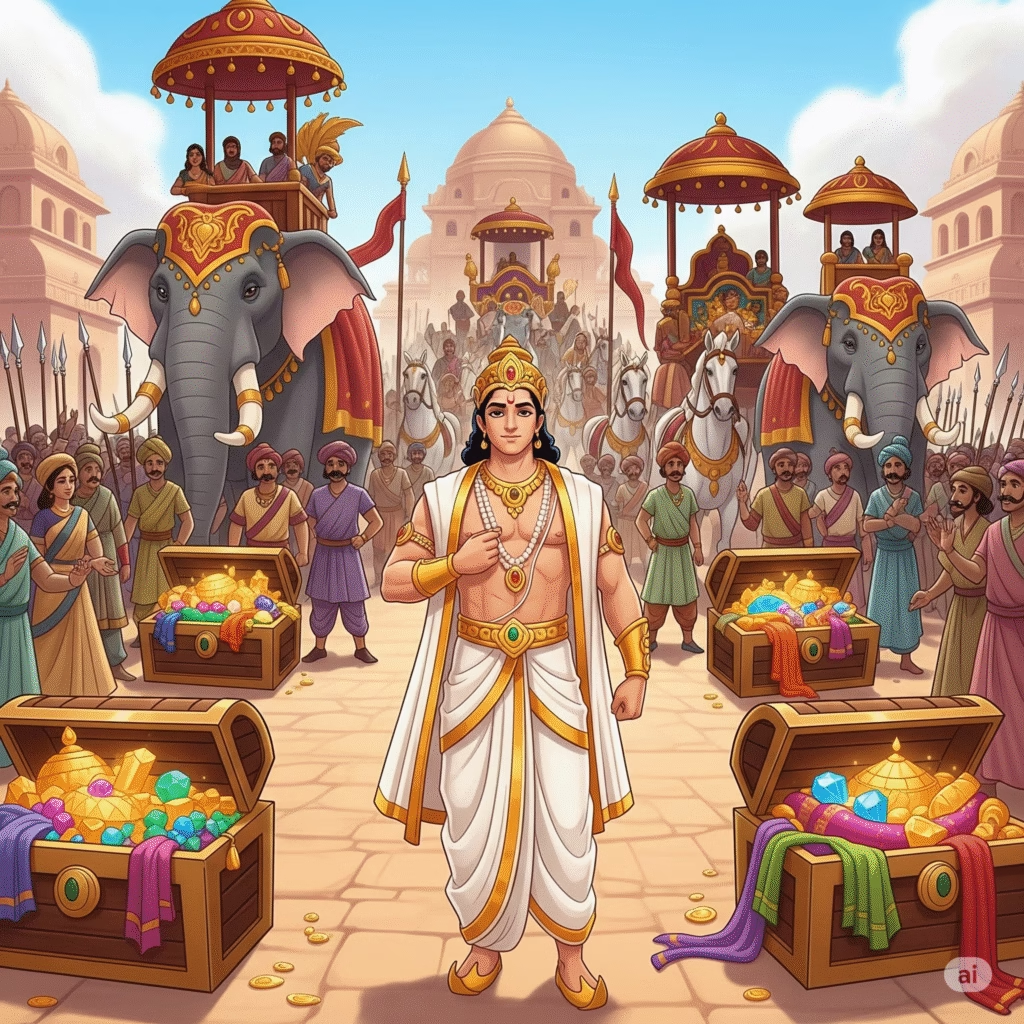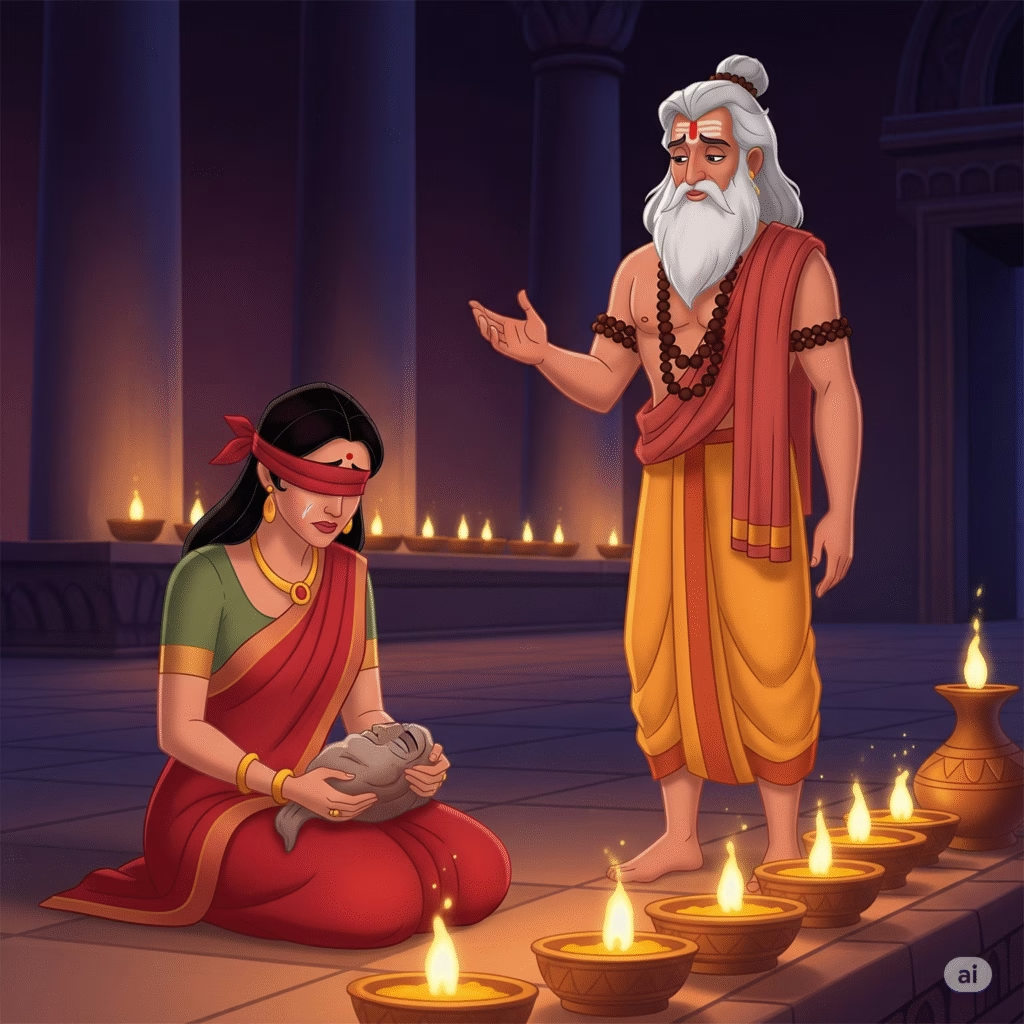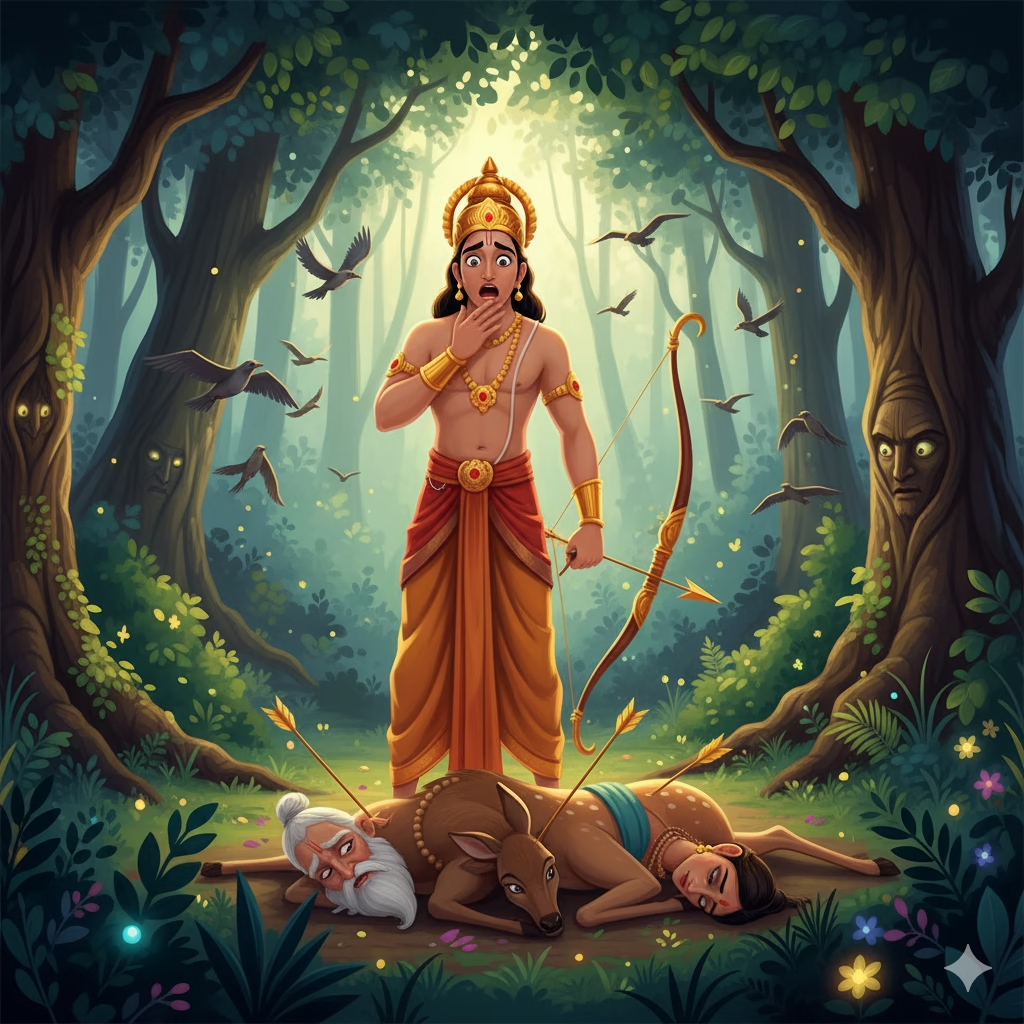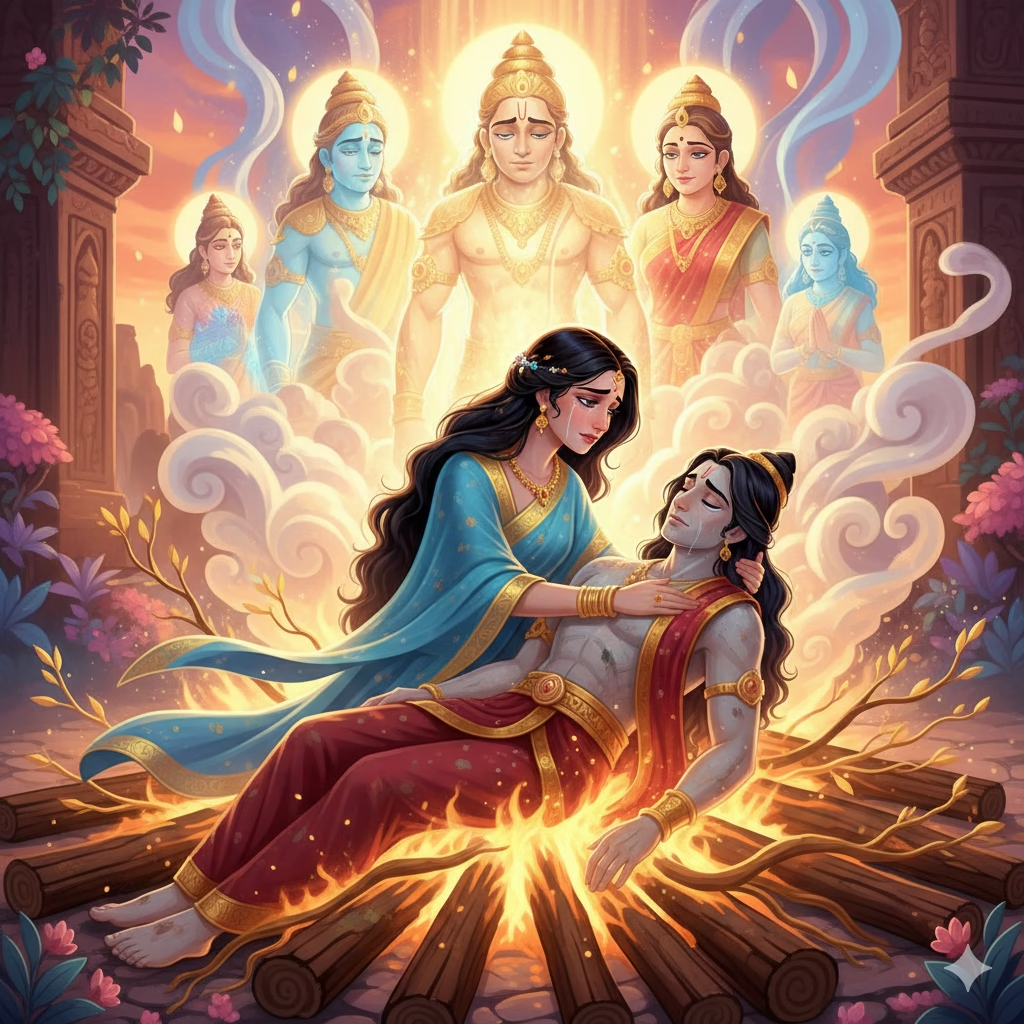After Prince Chitrangada’s untimely death, Satyavati’s younger son, Vichitravirya, who was still a child, was crowned the next king of Hastinapur. The reins of the kingdom remained in the steady, self-sacrificing hands of Bhishma. As years passed and Vichitravirya came of age, Bhishma thought it was time to find him a queen. His eyes turned to the royal court of Kashi, where a grand swayamvara was being organised for the king’s three daughters: Amba, Ambika, and Ambalika. Their beauty was said to rival that of celestial apsaras.
Bhishma, carrying Satyavati’s command like a sacred trust, mounted his chariot and rode alone to the kingdom of Kashi. As he entered the swayamvar hall, there was a hush. The assembled kings—dressed in gleaming armour and dreams—watched with surprise as a lone elder man stepped into their midst. Whispers began. The princesses, upon seeing Bhishma, turned away with subtle mockery—”This man? So old? What is he even doing here?“ Some cruel kings laughed openly. “He is ancient! Look at his white hair. Wrinkled and past his prime. Why has he come to a bride-choosing ceremony?
Their laughter mocked the very fire that once roared in Bhishma’s youth. Bhishma, though bound by peace, was still a Kshatriya. Their words struck deep, and his silence gave way to a roaring resolve. With a voice that thundered like gathering clouds, he declared, “You speak of swayamvara? Of noble marriage traditions? I know all eight forms of marriage—gandharva, asura, daiva, etc., and even the one where the bride is taken by might. That, today, shall be my path!“ With that, Bhishma seized the three maidens and placed them on his chariot. The hall burst into rage.
Kings, insulted and furious, discarded their ornaments and rushed for weapons. Chaos reigned. Chariots were readied. Armour clanged. The swayamvara turned into a battlefield. Their fury echoed like thunder. Ten thousand arrows were fired at once, all aimed at the lone warrior, Bhishma. But Bhishma was no ordinary man. With graceful skill, he shot down their arrows midair, then struck down chariots and bows with chilling precision. Blood, honour, and dust mingled in the air. It seemed as though stars were falling from the sky. The ornaments and weapons crashed all around.
Though surrounded, Bhishma stood firm. He was the lion in the jungle of the kings. His battle was not personal—it was for the crown, for the vow, for the brother who didn’t even yet understand the weight of the throne. One by one, he wounded, disabled, and shattered the pride of the kings. The future and fate of the three Kashi princesses were now tangled in royal duty.
Just as he began his return, the air split with another roar. Shalva, the king of Saubha, strong as an enraged bull, had come to fight for his beloved, Amba. Blinded by love, honour, and jealousy, he challenged Bhishma to halt. “Stop there! Face me, Devavrata!” Bhishma halted. The final clash was about to begin—not for glory, not for honour, not for a kingdom, not for a vow, but for the heart of a woman.
But the question that is stirring all our minds right now is, was Bhishma right?
Bhishma stood not as a mere warrior but as a guardian of Hastinapur’s legacy. His actions—abducting the princesses from the swayamvara—were rooted in his unwavering commitment to his vow and duty to secure alliances for his younger brother. His decision of abduction was not for love, not lust, nor even personal honour—but for duty, for the future of a kingdom, and for a promise he once made to his stepmother. Shastras supported him. Tradition stood by him. According to the ancient texts, he justified the act through the “Rakshasa” form of marriage, one of the eight accepted types of marriages, especially among Kshatriyas. He quoted the scriptures not out of arrogance, but to justify the very system he had pledged to uphold.
On the surface, Bhishma did what was expected of him—followed dharma, upheld duty, and protected the future of his kingdom—yet beneath that honour lies a shadow: in doing what was right for the throne, he silenced the voices of those who would sit on it. Amidst the clashing chariots and raining arrows, what went unheard were the quiet, grasping protests of Amba, Ambika, and Ambalika—the three women whose lives were being reshaped without consent. In choosing “Rakshasa Vivah,“ Bhishma invoked tradition, but tradition itself was a mirror of power. Did his righteousness allow room for empathy? Did his Dharma see the individual apart from the institution? Or was he, perhaps unknowingly, blinded by his wound, provoked by the laughter of the kings, shamed by age, stung by memory—and in that moment, reacted not just as a guardian, but as a man who had been mocked?
This moment is where the battlefield turns inward. Bhishma did his duty following the tradition, but what war did he ignite within himself? A man who had renounced marriage and desire had now taken women by force for another’s marriage. A man who prided himself on self-restraint had now acted without seeking permission. Hence, we see that even if you read hundreds of texts, you might still not be able to follow Dharma. Dharma is not merely a collection of guidelines. It is understanding the dynamics of a situation from every angle. It is patience. It is your connection with your inner world. In the later part of this epic, you will see Krishna taking decisions based on pure Dharma, and hence you will know what is to be done in the inner Kurukshetra.
Journaling Prompts
- When you are mocked or insulted, do you act out of calm strength or reactive hurt disguised as “righteousness”?
- Have you ever won a battle in the outer world while quietly losing one within?
Interesting reads
A section where we give you one interesting book recommendation daily.
This recommendation is not just a literary work; it is a living document of a mindset of defiance—a mindset that India’s youth claimed as their own for the very first time. A collective awakening was stirring, one that grew into a historical moment. The questions students asked in universities—Why do we study? What even is the role of a university? Is language merely script, or should it speak the language of life? Soon, it broke past classroom walls and spilt into the socio-political consciousness of an entire generation. Why are the concerns of students, teachers, farmers, and workers kept separate? How does the system fragment and distract them? Kashinath Singh doesn’t offer readymade answers. Instead, in this deceptively small but powerful book, he hurls the questions straight into our conscience.
If you’ve ever questioned the purpose of education, the role of institutions, or the fragmentation of people’s struggles, this book is a mirror. Hold it up.

